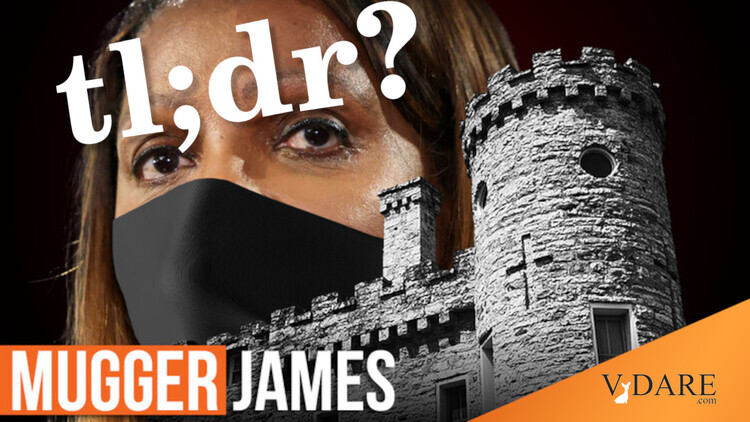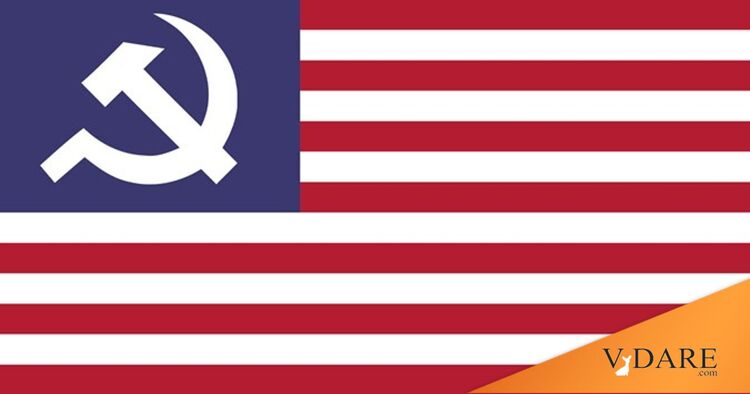Here’s something I wrote back in the last century:
WSJ: Banks should block depositors’ gifts to politically incorrectFrom the Wall Street Journal way back on June 11, 1999:June 11, 1999
Anyone interested in preserving freedom of speech on controversial topics should read the Wall Street Journal of today (Friday, June 11th). A lengthy, remarkable front page article advocates that banks should block their depositors from transferring their own personal money to politically incorrect organizations. I shall attempt to give a flavor of the article, but you really have to read it to believe it. …
The only note of sanity and respect for freedom in the article comes from Morgan spokesman Joe Evangelista: “We can’t tell our customers how to spend their money.”
Silent Partner: How the South’s Fight To Uphold Segregation Was Funded Up NorthIn other words, a bank customer had his bank send $100,000 of his own money to a legal organization that used it for lobbying over an important legislative issue before Congress.New York Millionaire Secretly Sent Cash to Mississippi Via His Morgan Account
‘Wall Street Gang’ Pitches In
By DOUGLAS A. BLACKMON
Staff Reporter of THE WALL STREET JOURNAL
JACKSON, Miss. – On the afternoon of Sept. 12, 1963, a vice president of Morgan Guaranty Trust Co. sent a telegram to the Mississippi State Sovereignty Commission, the agency created by local politicians to fight the civil-rights movement and preserve racial segregation.
A Morgan client, the telegram said, was “setting aside as an anonymous gift” stock valued at $100,000. …
Once the money arrived in Mississippi, it was funneled to an account in Washington, D.C., where segregationists were launching a fierce campaign to defeat landmark civil-rights legislation abolishing segregation in most public facilities. …
Those records show large transfers of money by Morgan on behalf of a client who turns out be a wealthy and reclusive New Yorker named Wickliffe Preston Draper. Mr. Draper used his private banker to transfer nearly $215,000 in stock and cash to the Sovereignty Commission for use in its fight against the Civil Rights Act. …But for how much longer will your bank allow you to spend your own money if you are on the Wrong Side of History?The files also highlight the ethical issues that confront an institution like Morgan Guaranty, the private-banking unit of J.P.Morgan & Co., when it is drawn, even unwittingly, into a client’s support for repugnant causes….
Morgan insists that the Sovereignty Commission transactions it processed for Mr. Draper were routine procedures carried out on behalf of a client, over which the bank had no influence or control.
“A thousand times a day, somebody sends money to an organization that 30 years later looks really terrible,” says Morgan spokesman Joe Evangelisti. “We can’t tell our customers how to spend their money.”
Mr. Evangelisti says the role Morgan played was no different from the way Wall Street banks today facilitate gifts to organizations that could be equally controversial. He cites donations made to Planned Parenthood (often criticized for its pro-choice stance), or to the Boy Scouts of America (which prohibits gays from becoming troop leaders).
Morgan’s policy, he says, is to pass no judgment on any client’s activities, except in the “rare situation” when “the wishes of a client … conflict with the principles that we stand for as a firm.” In those cases, the firm may close a client’s account, Mr. Evangelisti says.
Since the Sovereignty Commission was a legal, state-created entity, says Hildy J. Simmons, a managing director at Morgan Guaranty, the bank had no choice but to follow its client’s wishes. It would be no different today. “As long as the receiving party is legal, we have no discretion,” says Ms. Simmons.
Morgan did close the asset-management account it maintained for the Pioneer Fund after the furor erupted over “The Bell Curve” in 1994, according to people familiar with the situation. The bank won’t give details on why it did so.
That option is something banks should consider, says Thomas Donaldson, a business-ethics professor at the Wharton School of the University of Pennsylvania in Philadelphia. “Good bankers should have the words ‘Know thy client’ tattooed somewhere on their chests,” Mr. Donaldson says. “When the activities of the client or customer reach the point where they offend vital, deeply held values of the institution, you have to say no.” …
The result was a new national lobbying organization, called the Coordinating Committee for Fundamental American Freedoms. The Sovereignty Commission provided money to rent a Washington office and hire staff, and largely controlled the group from Mississippi.
On July 22, 1963, Mr. Satterfield received the first private contribution to the cause, a $10,000 Morgan Guaranty cashier’s check drawn from Mr. Draper’s accounts. It was deposited into a special account in the Mississippi state treasury and logged into Sovereignty Commission records with a simple notation: “Morgan Guaranty Trust Co.” …
Citing bank policy, executives at Morgan won’t discuss whether the bankers who worked with Mr. Draper knew of his racial leanings or the true nature of the Sovereignty Commission. …
Morgan says none of that is relevant. The bank likely had clients supporting the civil-rights movement as well, executives say. And, adds Mr. Evangelisti, “doing business with a particular client doesn’t mean that we endorse that client’s beliefs of actions.” It would be “offensive” for a bank to police how its clients conduct their affairs.
“That’s a privilege of being rich in America,” says Ms. Simmons at Morgan. “You can spend your money the way you want to.”
Douglas A. Blackmon, “Silent Partner: How the South’s Fight To Uphold Segregation Was Funded Up North,” Wall Street Journal (Friday June 11, 1999) p. 1; A8.
I used to know the guy who, more or less, ran the Wall Street Journal. I sent him a note suggesting that it was nuts for the WSJ to campaign for banks in effect stealing their customers money by not letting them use it.
My recollection was that he replied that he hadn’t thought of it that way.











